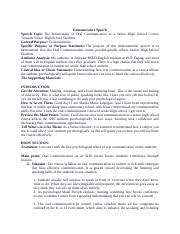How to Save Money on Accommodation While Backpacking
Imagine arriving in a new city and being welcomed into a local's home. That's the essence of Couchsurfing, a worldwide hospitality exchange that connects travelers with hosts offering free stays. This isn't just about saving money - it's about forging genuine connections that transform how you experience a destination. Through this platform, you'll discover hidden neighborhood gems and cultural insights no guidebook can provide.
What makes Couchsurfing special is its emphasis on mutual exchange. Hosts often share meals, local knowledge, and sometimes even become lifelong friends. The platform's community features allow you to verify members and read detailed references, creating a safer environment for these unique travel experiences.
Beyond Accommodation: Exploring Alternative Stays
The travel landscape offers countless ways to immerse yourself in local culture beyond conventional hotels. Consider these options:
- Homestays where you live with local families
- Farm stays offering hands-on agricultural experiences
- Volunteer exchanges that provide accommodation for work
These alternatives don't just give you a place to sleep - they offer windows into authentic daily life. You might learn traditional cooking methods, participate in local festivals, or gain skills you'd never encounter as a regular tourist.
The Importance of Cultural Exchange
When you share meals with a host family or work alongside locals, you're not just observing culture - you're participating in it. These interactions create understanding that goes beyond superficial tourism. You'll return home with stories about people, not just places.
This deeper engagement often leads to surprising discoveries. Maybe you'll learn why certain traditions matter or gain new perspectives on global issues. These are the moments that truly expand your worldview.
Budget-Friendly Travel Options
Alternative accommodations can dramatically reduce travel costs. Consider these savings:
| Option | Average Nightly Cost |
|---|---|
| Hotel | $100+ |
| Hostel | $25-$50 |
| Couchsurfing | Free |
| Work exchange | Free (with work) |
The money you save on lodging can fund more experiences or extend your travels. Many travelers report that alternative stays actually enrich their trips more than expensive hotels ever could.
Safety and Security Considerations
While alternative accommodations offer incredible opportunities, smart travelers take precautions:
- Always read host profiles and references thoroughly
- Have backup accommodation options available
- Share your itinerary with someone back home
- Trust your instincts - if something feels off, leave
Platforms with verification systems and review features significantly improve safety. Many experienced travelers recommend starting with shorter stays to test compatibility with hosts.
Community Involvement and Sustainability
Alternative travel often supports local economies more directly than conventional tourism. When you stay with families or small businesses, your money stays in the community. This creates a positive cycle where tourism actually benefits residents.
Many work exchange programs focus on sustainability projects like organic farming or conservation. These experiences let you travel while making a tangible difference in the places you visit.
Beyond the Destination: The Value of Experiences
Years after your trip, you might forget hotel room details, but you'll remember the family who taught you to make traditional dumplings or the farmer who explained sustainable agriculture. These human connections become the most treasured souvenirs.
Alternative travel teaches adaptability, cross-cultural communication, and problem-solving - skills that serve you long after your journey ends. You'll return home not just with photos, but with transformed perspectives.
Negotiating and Bargaining for Accommodation Deals

Negotiation Strategies for Successful Accords
Mastering accommodation negotiations requires understanding different approaches:
- Collaborative: Working together to find mutual benefits
- Competitive: Firmly advocating for your best deal
- Compromise: Finding middle ground when needed
The most effective negotiators fluidly combine these tactics based on the situation. Preparation is key - research typical prices and know your maximum budget before discussions begin.
Understanding the Agreement Structure
When reviewing accommodation contracts, pay special attention to:
- Cancellation policies
- Deposit requirements
- Included amenities
- Additional fees
Comparing multiple offers helps identify negotiable points. Properties often have flexibility during off-peak periods or for longer stays.
Identifying Key Interests and Priorities
Before negotiating, clarify what matters most to you:
| Priority | Negotiation Focus |
|---|---|
| Price | Discounts for cash/long stays |
| Location | Room upgrades |
| Amenities | Free breakfast/parking |
Understanding what the provider values helps create win-win solutions. Maybe they'll discount for guaranteed occupancy or positive reviews.
Developing Potential Solutions and Trade-offs
Creative bargaining might involve:
- Offering to pay upfront for a discount
- Trading positive publicity for perks
- Accepting less desirable dates for better rates
The best deals often come from unexpected combinations. Maybe you can get free airport transfers instead of a room discount.
Building Rapport and Trust
Successful negotiation starts with relationship-building:
- Be polite and professional
- Show genuine interest in their business
- Communicate clearly about your needs
People help those they like and trust. A friendly approach often yields better results than aggressive demands.
Managing Conflicts and Deadlines
When negotiations stall:
- Take breaks to cool tensions
- Reframe disagreements as shared problems to solve
- Use deadlines strategically (but don't invent false ones)
Clear communication prevents most conflicts. Confirm all agreements in writing to avoid misunderstandings.
Before diving into the design process, meticulous preparation of your travel plans is crucial. Research multiple accommodation options, compare prices across different platforms, and understand cancellation policies before committing.












